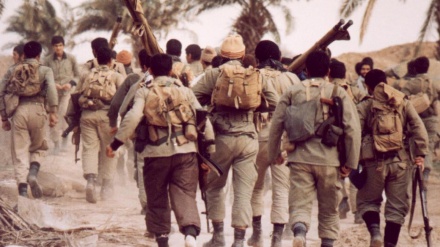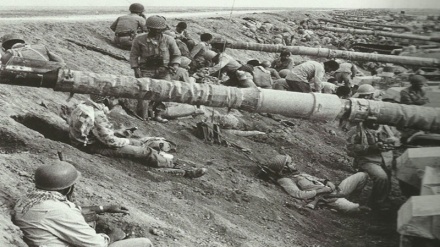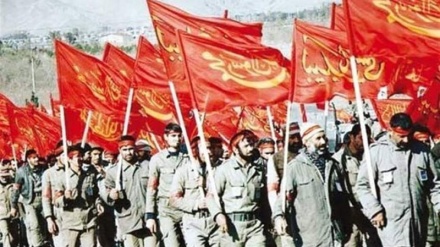Glimpses of Epic of the 8-Year Holy Defense (75)
In last week’s episode of “Glimpses of Epic of 8-Year Holy Defense”, we referred to Operation Karbala-1, and the lightning liberation of the border town of Mehran, which the Ba’thists had reoccupied following their defeats in Faw and other sectors.
Today, we will focus on the reflections of the world media on the amazing victories of Iran’s Muslim combatants.
AFP said military observers believe that the lightning recapture of Mehran by Iranian forces means the defeat of the Iraqi regime - especially its new military strategy. VOA quoted military experts as saying: Iraq's defeat may have a psychologically effect on Saddam. The Swedish daily Tempus quoted former US Secretary of State Henry Kissinger as saying "Washington has come to the conclusion that Iran is a bigger threat." An American official who declined to be named said: "I think the magnitude of Iran's victory for American interests in West Asia will be catastrophic. If Iran succeeds in establishing a friendly government in Iraq, the whole system of alliances in the Persian Gulf will completely change.
With the victories of Iranian combatants, American political, military, and intelligence efforts to counter Iran's success on the battlefield increased. Following US military action against Libya in the Gulf of Sirte, the then US Vice President George W. Bush said in a threatening statement: Our recent military action in Libya’s Gulf of Sirte should be a warning to Iranians. The US does not want to see Iran's prolonged war lead to a change in the balance of power in the region.
Immediately after Bush's threatening statement while on a trip to the Persian Gulf, Hojatt ol-Islam Akbar Hashemi Rafsanjani, the then Speaker of the Islamic Consultative Assembly and Supreme Commander of the Armed Forces, said: “Mr. Bush comes to our neighborhood in these critical conditions, and arrogantly says he will not allow Iran to win. For whom are his words? We know that you started a war to overthrow us, but since you have failed you are saying you will not allow the balance in the region to change.”
In the middle of 1986, both the US and the Soviet Union concluded that the war ought to end before Iran achieves the ultimate victory, which would mean the loss of Iraq and the whole Persian Gulf for the big powers. The US and Soviet leaders held a summit in October 1986 in Reykjavík, Iceland, where Ronald Reagan and Mikhail Gorbachev, had an hour-long private conversation before their foreign ministers joined them. This meeting was the basis for drafting of the UN Security Council Resolution 598 to end the war, before Iran could win. The then US Secretary of State George Schultz said in an October 16, 1986 interview with Crescent International: If Iran wins the war, the US will intervene militarily, and it will have full Soviet support, since neither of us want the political and military balance to change.
As the war progressed, both the quality and variety of weapons and arms of the Iraqi Army increased as well as the number of Iraqi Army units. On July 25, 1986, a meeting with the the Minister of Defense and senior military commanders, Saddam said: If necessary, we can create an army three times the size of the existing Iraqi army. He ordered mass military mobilization by closing universities and high schools. At the same time, the Soviet Union and France provided him with sophisticated weapons.
The Islamic Republic of Iran for its part, continued its military operations at the fronts to reclaim its occupied territories. The Ramadhan headquarters planned Operation Fath 1 in cooperation with the Iraqi Kurdistan Patriotic Front and the Iraqi Kurdistan Democratic Party deep inside Iraq in the Kirkuk region.
The operation took place on October 11, 1986, some 200 km inside Iraq. About 300 members of the IRGC Special Forces, in coordination with 2000 combatants of Iraq’s Patriotic Union of Kurdistan, carried out the operation by transferring about 150 tons of weapons by targeting oil installations and an airbase. It was a very successful operation and all Iranian forces managed to return safely to Iran to the bewilderment of Saddam and his military commanders.
So impressed were the friends of Iran that Syrian President Hafez Assad asked Iran to teach his armed forces in planning and carrying out such guerilla-type “hit-and-run” operations.
FK/AS/SS


